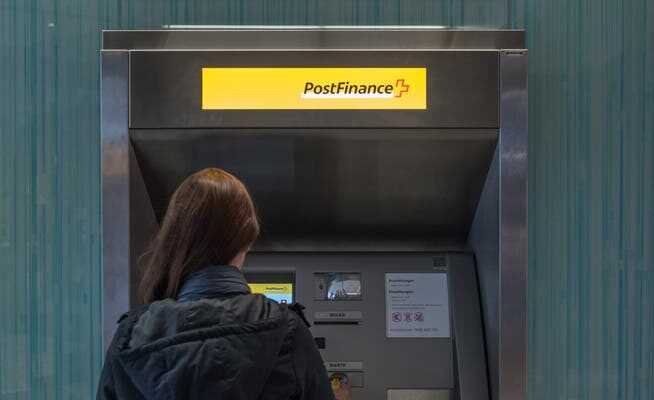With the foreseeable no, Parliament would also reject the lifting of the credit ban. On the other hand, the question remains open as to whether the federal government would still close the capital gap at Postfinance.
Postfinance will not be privatized for the time being.
It may not be the last nail in the coffin, but it will most likely be one of the last. The privatization of Postfinance seems off the table. The Commission for Transport and Telecommunications of the Council of States (KVF) is unanimously in favor of not taking action on a corresponding bill by the Federal Council. The KVF announced this on Tuesday With. The decision is no surprise. The Economic Committee (WAK) and the Finance Committee of the Council of States (FK) had previously advocated non-action – also without a dissenting vote. It would be tantamount to a political miracle if the majority of the small chamber could still be swayed by Federal Councilor Simonetta Sommaruga in the summer session in two weeks.
The almost certain end of the template is bad news for Postfinance. The partial revision of the Postal Organization Act was originally designed as a rescue package for the bank. It would solve two of the Post subsidiary’s problems: First, Postfinance suffers particularly from the low interest rates because, unlike “normal” banks, it is not legally allowed to grant loans or mortgages. The Federal Council would like to lift this ban on loans. Secondly, as a systemically important institution, the bank must close a capital shortfall by order of the Financial Market Authority (Finma). From the government’s point of view, neither Postfinance nor the postal group is able to do this. The Federal Council is therefore proposing that the federal government undertake to inject CHF 1.7 billion in an emergency.
The Federal Council has a plan B
However, Postfinance is unlikely to get rid of the competitive disadvantage known as the credit ban. A spokesman for the bank says: “While the other banks have managed to largely stabilize their interest margin thanks to the mortgage business, our margins have been declining for years and the interest income is breaking away from us.” The bank is already doing everything in its power to prepare for the future. However, in the current interest rate environment and the applicable legal and regulatory framework, Postfinance cannot match the results of previous years. The lifting of the credit ban is the key factor in ensuring the long-term profitability and competitiveness of the bank.
In the short term, however, the “Finma problem” is likely to be more urgent. The capitalization assurance could survive a template crash. The FK rejects the revision of the law, including privatization and the abolition of the credit ban. However, she has expressly spoken out in favor of the federal government injecting money into Postfinance in the event of imminent insolvency. The WAK, on the other hand, does not want to know anything about the change in the law or the capitalization guarantee. Which side did the KVF take? Commission President Hans Wicki says: “Unlike FK, but like WAK, KVF is against the capitalization guarantee.” The odds are bad here too.
The Federal Council sketched However, as early as the summer of 2021, he had a plan B in his message: If parliament rejected the entire proposal or even just the capitalization guarantee, he would take a different path, he wrote. The government does not consider a change in the law to be mandatory; only certain ordinances would have to be adjusted for the capitalization guarantee. However, even with this variant, the parliament cannot be bypassed. The councils would have to agree to a commitment loan.
Risky government tactics
Even the start of the template was not very promising. Initially, the Federal Council only wanted to abolish the ban on loans and close the capital gap. Only after the devastating consultation process did the Federal Council include the privatization of Postfinance in the package. The consultation had shown that the entry of a state-controlled bank into the mortgage market was not met with enthusiasm. With the privatization, the government wanted to buy the consent of the bourgeoisie, so to speak. The Federal Council should have been aware that this tactic would be risky. By “enriching” the bill with privatization, he made it unpalatable for the left-wing parties. He put everything on one card: a middle-class majority. That bet obviously didn’t work out.
This is probably also due to the fact that the link between the abolition of the lending ban and privatization is loose in the bill. The lending ban would fall immediately after the law came into force. According to the government’s timetable, privatization should only take place when it submits a corresponding federal resolution to parliament “in due course”. For a transitional period, an indirectly federally owned bank would be active in the credit market. In addition, Postfinance is closely intertwined with the postal group. Separating the bank would have massive consequences for the rest of the group. The KVF rejects the bill with the argument that the question of the basic postal service of the future must first be clarified. The Federal Council is expected to state before the summer break which public service it believes Swiss Post will still have to provide in the future.
